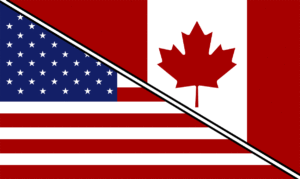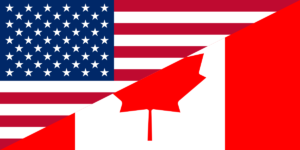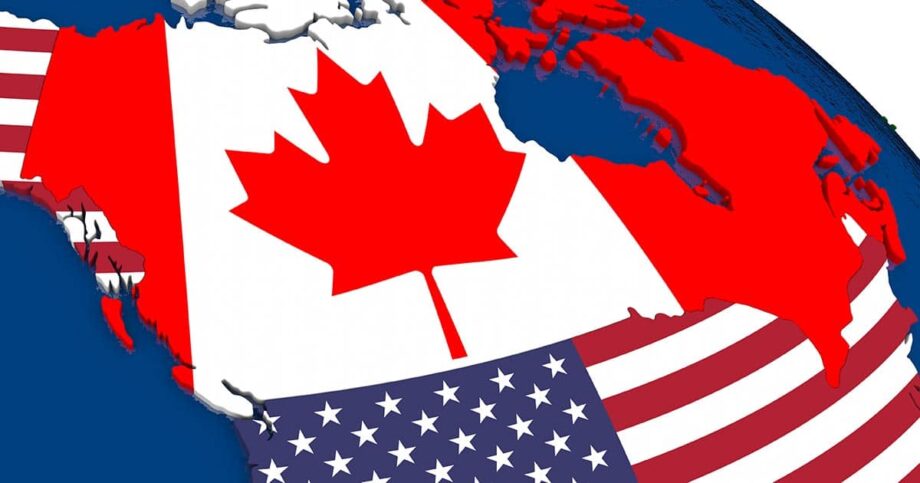Move to the US from Canada
Move to the US from Canada
Moving from Canada to the United States is a significant transition that involves navigating immigration regulations, understanding employment options, adjusting to cultural differences, and planning for practical necessities like housing, healthcare, and finances. This guide provides an in-depth look at the essential factors in making a successful move to the U.S. from Canada, covering visa types, financial planning, lifestyle changes, and settling into American life.
1. Immigration and Visa Options
To legally live and work in the United States as a Canadian citizen, it’s essential to obtain the appropriate visa. Several visa options are available for Canadians, including work visas, study visas, family-sponsored immigration, and investment-related visas.
1.1 TN Visa (Trade NAFTA): Move to the US from Canada
- The TN visa is one of the most accessible work visas for Canadians, available under the United States-Mexico-Canada Agreement (USMCA).
- It allows Canadian professionals in specific fields (such as engineering, medicine, and teaching) to work in the U.S. for up to three years, with possible renewals.
- Unlike other work visas, the TN visa does not have a formal application process with the U.S. Citizenship and Immigration Services (USCIS) and can be acquired at the border.
1.2 H-1B Visa: Move to the US from Canada
- This visa allows skilled professionals to work in specialty occupations in the United States.
- The H-1B has a quota system, so Canadians interested in this option should apply early and have an employer willing to sponsor their visa.
- H-1B visas allow for a pathway to a green card, making it ideal for those seeking permanent residency.
1.3 L-1 Visa (Intra-company Transfer): Move to the US from Canada
- Canadians working for a multinational company with U.S. offices can use the L-1 visa to transfer to the United States.
- It is available for managers, executives, and specialized knowledge employees, offering a maximum stay of up to seven years.
1.4 E-2 Visa (Investor Visa): Move to the US from Canada
- This visa is suitable for Canadians who wish to start or invest in a U.S.-based business.
- The E-2 visa requires a significant capital investment and the intention to manage or develop the business.
1.5 Family-Sponsored Immigration: Move to the US from Canada
- Canadians with close family members who are U.S.
- This includes categories for spouses, parents, children, and siblings.
1.6 Study Visa (F-1 Visa): Move to the US from Canada
- For Canadians interested in studying in the U.S., the F-1 visa allows them to enroll in full-time academic programs.
- This visa can lead to Optional Practical Training (OPT) after graduation, offering temporary work authorization.

2. Financial and Tax Considerations
Relocating to the U.S. requires a thorough understanding of the financial implications, especially taxes, as you will now be subject to American tax laws.
2.1 Dual Taxation: Move to the US from Canada
- You may still have to report income to both countries.
- Consulting with a cross-border tax professional can ensure compliance with both Canadian and American tax regulations.
2.2 Cost of Living: Move to the US from Canada
- The cost of living in the United States varies significantly based on location. Urban centers like New York City, Los Angeles, and San Francisco have high housing, food, and transportation costs.
- Tools like cost-of-living calculators can help you budget for your new location.
2.3 Banking and Credit: Move to the US from Canada
- Setting up a U.S. bank account is essential for everyday expenses and financial stability. Many Canadian banks, like TD and RBC, have U.S. branches that can simplify the transition.
- Establishing a U.S. credit score is critical, as it affects your ability to rent, secure loans, and open credit accounts. Consider applying for a U.S. credit card to build your credit history.
3. Health Insurance and Healthcare
Healthcare in the U.S. operates on a private insurance model, unlike Canada’s public system. Adjusting to this change requires careful planning, as healthcare costs can be high.
3.1 Obtaining Health Insurance
- Employer-sponsored health insurance is common, but those without it should look at options through the Health Insurance Marketplace.
- Short-term plans are available for new arrivals but should be carefully reviewed for coverage details, including pre-existing conditions.
3.2 Finding Healthcare Providers: Move to the US from Canada
- Research local healthcare providers and insurance networks to find a primary care provider.
- Emergency services and urgent care clinics are widely available but come with varying costs, depending on insurance coverage.

4. Housing and Living Arrangements: Move to the US from Canada
Finding suitable housing is essential in any move. U.S. housing markets vary greatly, so you’ll need to decide on rental versus ownership based on your budget, job security, and long-term plans.
4.1 Renting vs. Buying
- Renting may be the best option initially, as it allows flexibility. Online platforms like Zillow and Apartments.com can be valuable resources for rentals.
- For those planning to stay long-term, purchasing property may be worth considering. Research the real estate market and mortgage options if you intend to buy.
4.2 Types of Housing: Move to the US from Canada
- Americans have options ranging from apartments and condominiums to detached homes and townhouses. Large urban areas tend to have more apartment and condominium options, while suburban areas offer more detached housing.
5. Cultural Differences and Lifestyle Adjustments
The U.S. and Canada share many similarities, but some cultural nuances and lifestyle adjustments may surprise newcomers.
5.1 Social Norms and Etiquette
- Americans are generally known for their direct communication style, strong individualism, and sense of patriotism. Understanding these traits can help foster smoother social interactions.
- Tipping is expected in many situations, including dining, personal services, and deliveries, typically ranging from 15% to 20%.
5.2 Regional Diversity: Move to the US from Canada
- The U.S. is culturally diverse, with notable regional differences. For example, Southern states have distinct customs and hospitality traditions, while the West Coast is often seen as more laid-back.
6. Employment and Work Environment
The U.S. job market is large and varied, but work culture, labor laws, and practices differ from Canada’s.
6.1 Job Search and Networking
- Job-seeking platforms like LinkedIn, Indeed, and Glassdoor are widely used. Networking can be critical, as many jobs in the U.S. are filled through personal connections and referrals.
- Attending job fairs and networking events in your industry can improve your chances of finding employment.
6.2 Workplace Culture: Move to the US from Canada
- U.S. companies generally expect high productivity and long work hours, especially in competitive industries. However, the work culture varies significantly across different regions and sectors.
- Many workplaces emphasize hierarchy, and achievement is often rewarded through performance-based incentives.

7. Education for Families: Move to the US from Canada
For those moving with families, understanding the U.S. education system can be crucial for choosing the right school.
7.1 Public and Private Schools
- The U.S. has a strong public school system, but the quality varies by district. Researching school ratings and reviews is important, especially when choosing where to live.
- Private and international schools offer alternatives, particularly in urban areas, but can be costly.
7.2 Higher Education
- The U.S. is home to renowned universities and colleges, many of which offer favorable tuition rates for Canadian students. Applying for student loans and scholarships can help offset costs.
8. Legal and Practical Considerations: Move to the US from Canada
Several practical and legal issues are essential for Canadians moving to the U.S.
8.1 Driver’s License and Vehicle Registration: Move to the US from Canada
- Each state has specific requirements for transferring a driver’s license and registering a vehicle. Ensure you meet these requirements, as timelines and conditions vary.
- In most cases, Canadians can drive in the U.S. with a Canadian license for a limited time but will eventually need to obtain a local driver’s license.
8.2 Voting and Citizenship
- Canadians cannot vote in U.S. elections unless they become U.S. citizens. Those who wish to pursue citizenship must first become permanent residents and meet other eligibility criteria.
8.3 Long-Term Residency: Move to the US from Canada
- Canadians intending to stay long-term in the U.S. may apply for a green card. The application process can be lengthy, depending on the category (employment-based, family-sponsored, etc.).
Conclusion
Moving from Canada to the U.S. offers exciting opportunities for career growth, cultural enrichment, and new experiences. Careful planning and preparation can ease the transition, allowing Canadians to settle into their new lives smoothly. Whether you’re moving for work, study, or personal reasons, understanding visa requirements, financial obligations, healthcare considerations, and lifestyle adjustments will help ensure a successful move to the United States.
In case, if you need help to Move to the US from Canada, please fill in application below or contact us directly.

